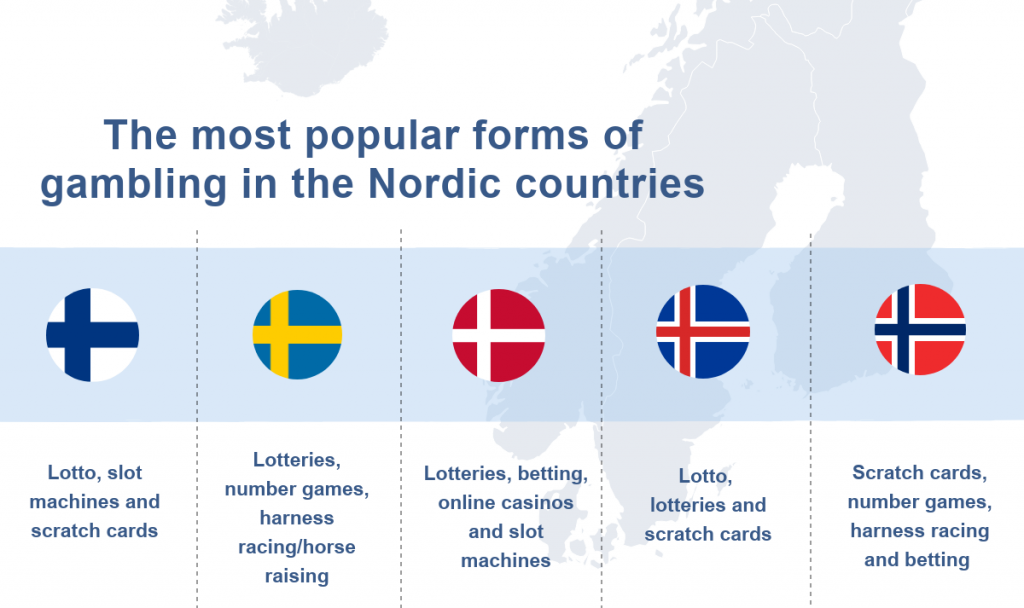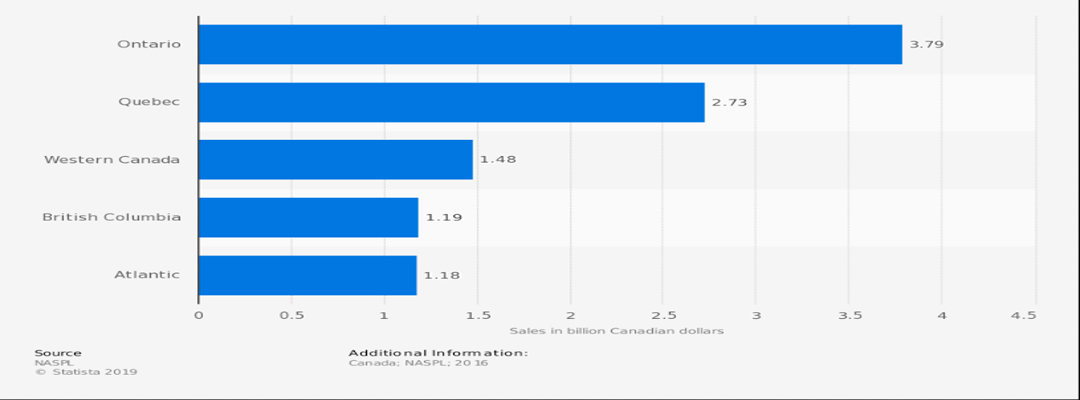Us Online Gambling Statistics
With the increasing reach of online gambling, those numbers have probably only grown larger in recent years. Some Key Online Gambling Statistics. The global market for online gambling reached around US$45.8 billion in 2017; In The UK, total gross gambling yielr 2017-18 was estimated at £14.5 billion. National gambling statistics. The following reports are available for download: 2019. National Gambling Statistics, Financial Year ending 31 March 2019 - Audited. The casino, lotteries, sports betting, and others segments are further segmented by sales channel into offline gambling, online gambling, and VR gambling. Among these, in the casino segment, VR gambling will be the fastest growing to 2022, at an annual rate of more than 21.5%. Follow the RSS feed for this page: 1615 L St. NW, Suite 800 Washington, DC 20036 USA (+1) 202-419-4300 Main (+1) 202-857-8562 Fax (+1) 202-419-4372 Media Inquiries About Pew Research Center Pew Research Center is a nonpartisan fact tank that informs the public about the issues, attitudes. Global online gambling market is projected to grow at a CAGR of 8.77%, during the forecast period (2019 - 2024). The online betting is the fastest growing segment during the forecast period. Artificial intelligence, Chabot, and machine learning have taken over the market.
Nowadays gambling has become even more popular than decades ago, owing to the development of Internet technologies. There are millions of gamblers all over the world. Most of the players, who parlay responsibly and don’t cross their safe bankroll limits, will have a great time.
Unfortunately for some people, it’s not just harmless entertainment. Sometimes it can lead to serious issues in different aspects of life. This might happen when a person starts experiencing addiction problems (a player is not capable of controlling his/her gambling behavior).
Problem Gambling Prevalence Rate
Us Online Gambling Statistics History
Some countries show a higher prevalence rate than others, and it may be explained by cultural, economic, political, and legal factors. We’ll provide thorough information about gambling addiction in different parts of the world, based on recent research from 2016.
Australia
According to the statistics on problem gambling among the population, Australia shows quite high numbers. Approximately 0.5-1% (figures vary in different states) of citizens suffer from this addiction. This is so due to the changes in the betting industry due to digital technologies.
Us Online Gambling Statistics 2019
More people can now access betting entertainment via different online services, therefore the cases of unhealthy gambling have increased greatly. Each year Australians spend almost $1.5 billion on online wagering. Moreover, due to the high rate of illegal (in AU) sites, people are losing up to $0.5 billion to overseas companies.
That’s why Australia does everything to prevent unauthorized companies from entering their inner gaming market. According to the Gambling act 2001, with the recent amendment (2016), it is prohibited for foreign casino operators to provide their service there unless they are not licensed in AU.
Such strict rules also serve for decreasing the rate of dangerous betting habits.
Canada
Interestingly, Canada is among the countries with the highest percentage of gambling addicted citizens. Imagine that ¼ of all CA residents (or their friends/relatives) have suffered from some sort of bad consequences (job loss, depression, marriage problems and etc.) owing to their dependence.
And more than 80% of respondents have participated in lotteries during the past year.
It is a serious problem that affects millions of Canadians, although only half of those surveyed agreed that gambling can be dangerous.
New Zealand
New Zealand has the least number of problem gamblers according to the study by Business and Economic Research. It states that only a few citizens are liable to excessive betting behavior. Most of the casino clients in NZ are well aware of possible hazards, and know when it’s better to stop playing.
Norway
Despite the fact that there is government regulation of gambling activities, which provides various measures to decrease addiction problems among citizens, Norway is far away from the minimum rate of dependent people. Approximately 0.7% (more than in Denmark and UK) of the population in this country is grappling with the problem.
UK
Addiction drains a lot of money (about 1.2 billion pounds per year in the UK). Therefore, the government should pay special attention to this issue. According to various scientific sources, the cost also comprises special institutions service (mental health clinics), homelessness and police involvement.
The percentage of people who suffer from the bad influences of gambling varies from 0.6 to 1.1% of the total adult population. Diverse age groups show different liabilities to betting activities, which results in such data as 0.7% (for 25-34-year-olds), and 0.8% (for 18-24-year-olds). Moreover, the research also shows that unemployed, homeless, and people of color tend to be in the risk zone more often than others.
USA
The USA is in the top list of countries, where a huge part of the population (2.6% or almost 10 million people) has an addiction problem because of gambling. These activities are represented in every state (even where they are restricted).
Of course, not all players have serious dependences, some just like to have some fun and feel a little risk, while others learn to gamble on a professional level, which helps to avoid big losses.
Unfortunately for other types of people, such an entertainment can lead to an illness, that should be treated (due to the high similarity with drug and alcohol addiction).
Overall, compulsive betting behavior costs about 6 billion dollars per year for U.S. economics.
Distribution of Problem Players
Problem players have a different prevalence and it depends greatly on age and gender. These points are well-documented in the following paragraphs.
By Age
People are divided into age groups such as:
• 16-24 year olds – who show the most susceptibility (1.4%)
• 25-34 – tend to gamble less than their younger and older mates (0.8%)
• 35-44 – are also at a higher risk (1.1%)
• 45-55 and older – only 0.3% or less.
By Gender
The sharpest contrast we see is in the statistics that differentiate people by gender:
• Men – 1.2%
• Women – 0.1%.
Statistics of Device Usage
To understand the subject better, we will also provide statistics, which shows what devices are used mostly by problem gamblers:
• Laptops – 55%
• PCs – 34%
• Mobile phones/tablets – 29%/21%
It’s interesting to note, that mobile phones are used more commonly by 18-44-year-olds, while PCs are more popular among older people.

Gambling, for some people, is a leisure activity that offers a night out on the town enjoying time with friends and family, with a distant possibility of winning money. For other people, the stakes are higher. After all, gambling is a $40 billion dollar industry in the United States. In Las Vegas alone—the unofficial gambling capital of the world—the casinos bring in over 10 billion dollars from people placing bets. Though many of those people only gamble once in awhile, there are people who make gambling the center of their universe. In other words, they are addicted to gambling.
The temptations to gamble are everywhere and you don’t need to be in a casino to try your luck. Every state in America, with the exception of Utah and Hawaii, offer some type of legalized gambling—from old-school slot machines to sports-betting apps and everything in between. The accessibility to gambling has only amplified with the Internet. Based on various surveys in recent years, it is estimated that two million people in the US are addicted to gambling. But that figure has the potential to increase at anytime, because those same surveys revealed as many as 20 million people noting that their gambling habit had begun to interfere with their work and social life. That type of behavior falls into the category of “compulsive gambling,” which is the stage before gambling addiction.
What is Compulsive Gambling?
“The shortest version is that compulsive gambling is, as its name implies, a compulsion,” says Lance Dodes, MD, author of THE HEART OF ADDICTION: A New Approach to Understanding and Managing Alcoholism and Other Addictive Behaviors. “Compulsive gambling leads to an addiction, which is a psychological symptom that is well-understood and treatable with psychotherapy oriented toward that understanding. It is not a biological, genetic or moral issue, and it is not fundamentally different from other compulsive behaviors or addictions.”
Article continues belowWorried you or a loved one may be suffering from a gambling addiction?
Take our 2-minute gambling addiction quiz to see if you may benefit from further diagnosis and treatment.
Usually, people start out gambling for fun, and then they lose money they didn’t mean to, and they end up chasing that loss until all their money is gone. And in many cases, people are gambling because they have faced emotional and financial losses and they are trying to console themselves.
There is a misconception among many people that problem gambling, another term for gambling addiction, is not a big deal. “Most people don’t realize that problem gambling is a real disorder, just like alcohol or drug addiction,” says Shelia Moran, director of communications and marketing at First Choice Services, a nonprofit agency in West Virginia dedicated to mental health issues and problems. “They think it’s just a bad habit that can be easily ended. The good news is that we find most people who get treatment are able to successfully stop gambling.”
Gambling and Co-Existing Mental Health Conditions
Sadly, it is estimated that over 80% of people who suffer from some type of gambling addiction never seek treatment, no matter how bad their problem is. Other statistics reveal that while there are people who do seek treatment for their gambling addiction, over 70% end up returning to the world of betting. People with this type of disorder are more likely to suffer from other types of mental health and substance abuse issues. Many gamblers also have an alcohol disorder or addiction, and over half were nicotine dependent.
The emotional toll it takes on people is devastating, and in many cases a gambling addiction can also bring bouts of depression, and in extreme situations may lead to suicidal thoughts or tendencies. People with a gambling addiction are also prone to anxiety, high stress and extreme sadness. When a gambler loses everything, their life will suddenly become hopeless and they fear what the future might bring.
Gambling Addiction Symptoms and Signs
As with other addictions, there are warning signs to look out for. These include:
- Keeping gambling habits a secret
- Having trouble controlling their gambling habit
- Continuing to be involved with a gambling habit when they cannot financially afford to do so.
- Resorting to illegal activities to pay for their gambling habit
Physical symptoms of excessive gambling include problems sleeping, weight gain or loss, dark circles under the eyes and extreme headaches.
Us Online Gambling Statistics Today
How can you tell if someone has a gambling disorder? The American Psychiatric Association has developed guidelines and says that a person requires at least four of the following issues to take place during the past year:

- A person feels the need to gamble with an increasing amount of money in order to achieve the desired excitement.
- A person becomes angry, restless or irritable when someone tells them to cut back on their gambling, or to stop it altogether.
- A person will have unsuccessfully tried to cut back or stop gambling on their own.
- A person has frequent thoughts about gambling, including reliving past gambling adventures, planning their next gambling outing, and thinking of ways to get money to gamble with.
- A person will often gamble when they are feeling distressed.
- After a person loses money, they return to try and “get even” (referred to as “chasing” one’s losses)
- A person will not hesitate to lie to hide their gambling activity.
- A person will jeopardize or lose a significant relationship, job or educational/career opportunity because of gambling.
- A person will begin relying on others to help with money problems caused by their gambling habits.
Treatment Options for Gambling Addicts
If you suspect that someone in your life is addicted to gambling or a compulsive gambler, you should know that there is help. Here are treatment options to consider:
- “Behavior therapy and cognitive behavior therapy are recommended for compulsive gamblers,” says Katie Hurley, LCSW. “Behavioral therapy uses systematic exposure to the behavior to teach skills to reduce the urges, while cognitive behavioral therapy focuses on identifying unhealthy and irrational thoughts and replacing them with positive/adaptive ones. Family therapy is another option,” Hurley explains.
- Apps can help instill healthy habits and encourage consideration of events and emotions that lead to compulsive behaviors. Addiction AVERT app can help curb cravings. BreakFree can help people who use their smartphones to gamble spend less time on their phone.
- Adaptive coping strategies like exercise, deep breathing, progressive muscle relaxation, mindfulness, and meditation are all positive options. There are even meditation apps that can help anyone who doesn’t know where to start.
According to the American Psychiatric Association, as of 2016, there are no FDA-approved medications for the treatment of gambling disorder. There is, however, emerging scientific research that has shown that medications can be effective in reducing the intensity of urges and cravings for gambling.
Finally, Gamblers Anonymous has been beneficial in the lives of people who have an addiction; however, they must first admit they have a problem, which is often times the most difficult thing to do. If someone is unable to find an accessible chapter of Gamblers Anonymous, Alcoholics Anonymous addresses many of the same behaviors.


Just as anyone can become addicted to gambling, anyone can stop.